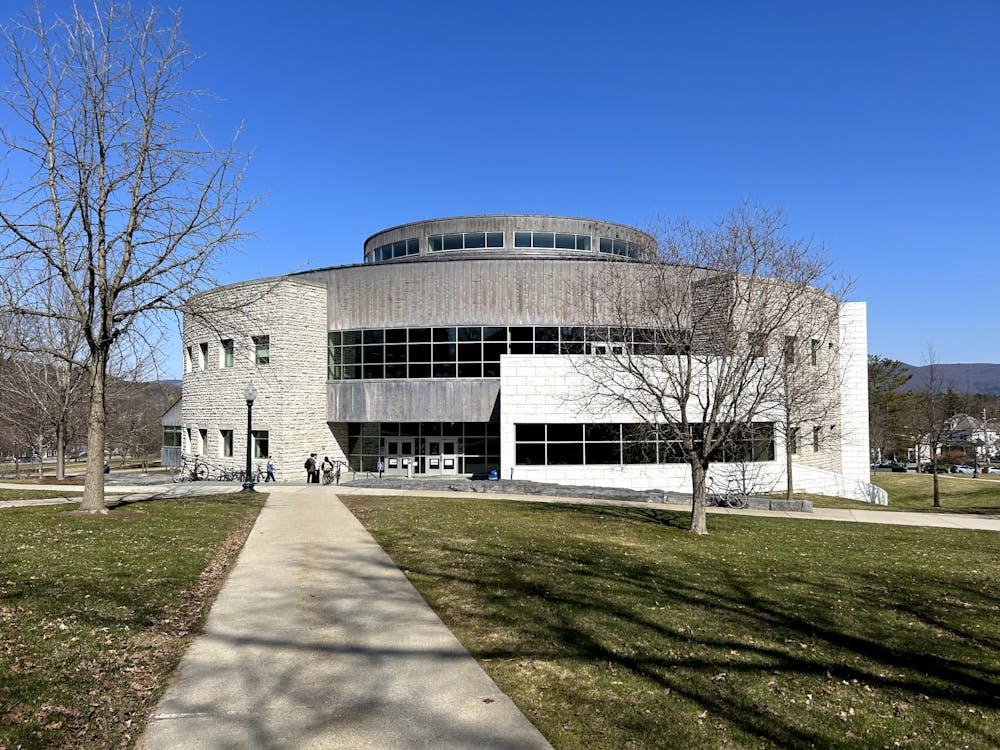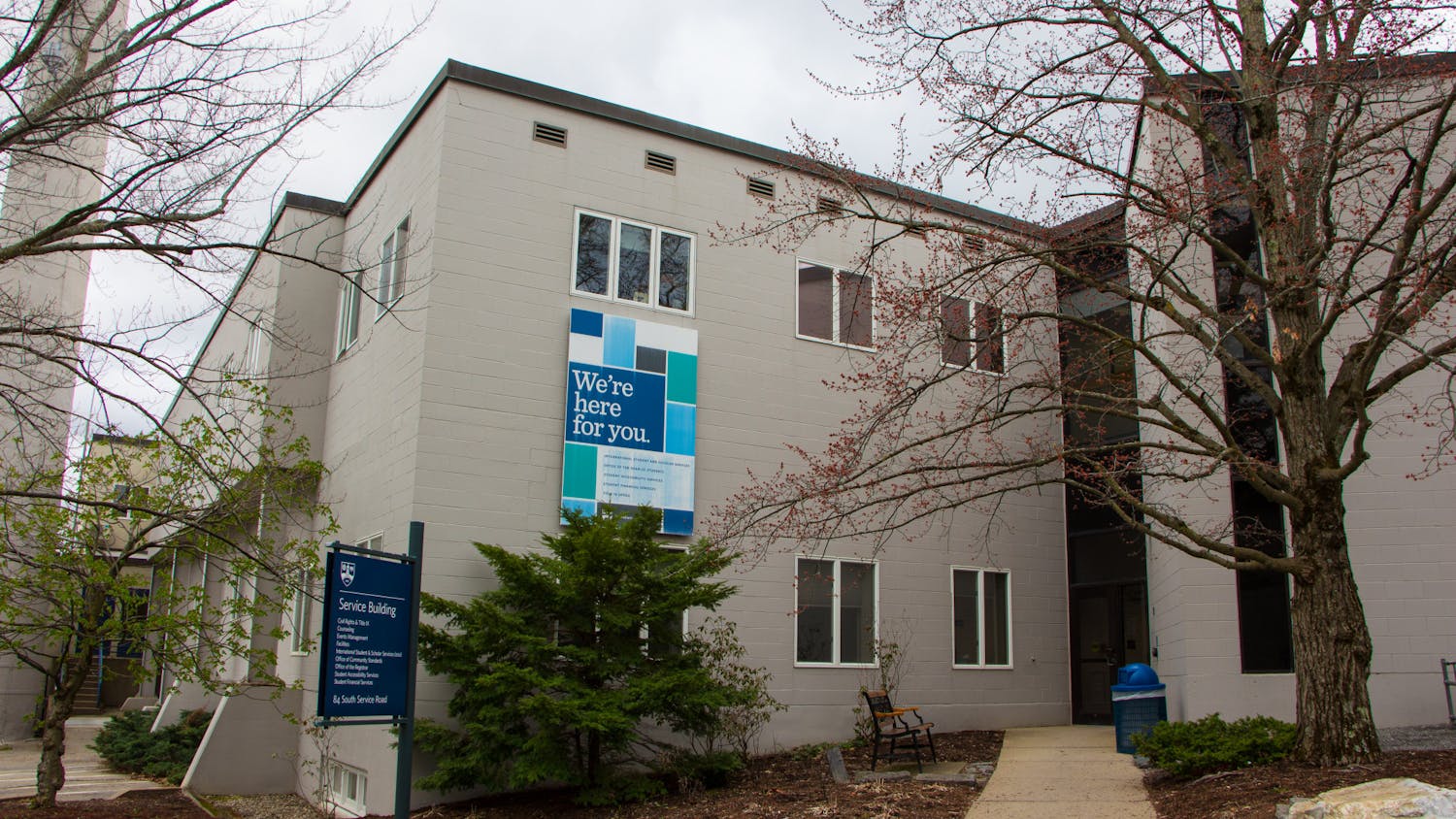Four of Davis Family Library’s librarians have left their jobs in the past four months, leaving the following vacancies in the User Experience Librarian, Science and Data Librarian, Head of Collection Development and Head of Research and Instruction positions. A new User Experience Librarian will start this month to partially relieve the intensified workload of the remaining five librarians, who are struggling to maintain their usual responsibilities in the wake of the understaffing.
The sudden staffing turnover is new for Davis this spring. According to Director of Discovery & Access Services Terry Simpkins, three of the four vacancies are partially due to discontent with Middlebury’s new staff compensation system implemented by Human Resources in July 2022. The system, also known as the “skill matrix,” has supervisors assess their employees and allocate additional pay based on their determined pay grade level. Simpkins mentioned that family issues and pursuit of a career change also led his former colleagues to seek work elsewhere.
Film & Media Librarian Amy Fraizer said that despite the library’s efforts to prioritize student-facing tasks, they were forced to cut back research desk hours for the spring semester due to the lack of staff. Their previous 11 a.m.–5 p.m. Monday through Wednesday hours have been cut to 1–5 p.m., and to 1–4 p.m. on Thursdays. Evening hours have been eliminated completely but will resume to assist with finals from April 24–May 23 on Monday, Tuesday and Wednesday from 7–9 p.m.
“As we have continued to lose people, we just don’t have enough people to cover these shifts anymore,” Frazier said. “That was a painful decision to make because that’s one of those student contact functions that we serve. You know it’s getting serious when that stuff starts to go.”
Brenda Ellis, senior research and instruction librarian, specified that no classes or students seeking individual meetings to talk about their research have been turned away due to understaffing, “but getting help may not be as timely or may not be with a librarian that specializes in the particular major,” Ellis wrote in an email to The Campus.
Frazier’s greater concern is for the upcoming fall semester, when all first-year seminars will each need one to two class sessions with a librarian instructor, on top of other departments that seek classroom instruction. With only four librarian instructors and a minimum of 2,500 students including first-years, Frazier said attending to all of their needs will present significant difficulty.
According to Fraizer, the deselection process, in which librarians sift through their collection to eliminate items that are no longer relevant to make room for new material, is another function that gets delayed when there is not enough staff to attend to it. They began the process before the Covid-19 pandemic with the intent of finishing it within a couple of years, however, the timeline has now extended four or five years since they started.
“It’s what makes the library work, but we only have a certain amount of time we can devote to it. It’s one of those functions that kind of start to fall away when there’s just not enough people to cover everything,” Frazier said.
Simpkins is facing separate challenges in the absence of a Collections Development Librarian, a full-time position that makes decisions about the library’s purchases of databases, subscriptions and other material. Without someone to cover those responsibilities, the majority of purchasing decisions fall on him, in addition to his usual work of ensuring the material is paid, discoverable in the library systems and accurately described in the library catalog (MIDCAT) and discovery layer (LibrarySearch).
Before the previous Collections Development Librarian left, he and Simpkins had a series of conversations about the plans the librarian had envisioned for the future of their collection purchases, but even with this knowledge and Simpkins’ extensive library experience, making these choices and communicating with all of his staff has not been an easy task.
“I talk to vendors. I’m trying to stay in the lanes that we’ve historically been buying in. I’m trying to be a little bit conservative in how I make my decisions. I don't want to tie the hands of the person that we ultimately do hire — it’s kind of a balancing act,” Simpkins said. “I’m answering emails until nine, 10, sometimes 11, o’clock at night, it feels like pretty much 24/7 at this point.”
“There’s a certain expertise to think where you want to go long-term with how we spend our money and build our collections, so there’s a risk — if we don’t fill the position — there's a risk that we don’t perform well,” Mike Roy, dean of the library, said.
Two out of the four librarians that left were on the library’s leadership team, leaving the team with only three members.
“There are just fewer brains to bounce ideas off of, that many fewer perspectives,” Simpkins said.
Another issue is a lack of available substitutes when someone is absent from work — all of the remaining librarians have pitched in extra hours to cover for each other.
In addition to the incoming User Experience Librarian, the hiring team is currently in the process of interviewing candidates to fill the vacancies and are hoping to bring someone into the Collections Management position by July, before workloads increase in the fall. They anticipate going into the fall with two positions still vacant.
“The searches we’re in right now have a really strong pool,” Roy said. “We’ve been very lucky so far.”
Simpkins and Roy described the hiring process as long. Once approval is given by the Ways & Means Committee, it can take one to two months to collect a group of applicants. Subsequent screenings, bringing candidates to campus for interviews, potential salary negotiations (a process that may look different with the new compensation system) and waiting for the prospective hire to accept the offer and relocate to Vermont can take three to four months.
Roy views this as an exciting opportunity to re-evaluate what the library should do with each position.
“This will be a new turning point moment with lots of new voices and new ideas,” he said.
Frazier added that with four positions to tweak at once, they have the chance to almost reinvent the department.
Simpkins is also looking forward to working with someone who will bring new ideas to collections management.
“I have been here 23 years, and it’s easy to start developing blinders in a way,” he said. “It’s always useful, great, helpful, invigorating to get somebody from a different place with a different place with a different perspective and different ideas.”
Before the empty positions are filled, the current librarians will have to continue to work around the vacancies by pushing non-student-related tasks aside and picking up the extra slack. “We're really hoping we can get some people back for the fall so that we are able to support all our classes,” Roy said.

Madeleine Kaptein '25.5 (she/her) is a managing editor.
Madeleine previously served as a staff writer, copy editor and local editor. She is a Comparative Literature major with minors in German and Art History. In Spring 2024, she studied abroad in Mainz, Germany, from where she wrote for the Addison Independent about her host country. In her free time, she enjoys journaling, long walks and runs, and uncomplicated visual arts projects.




